Powers of Arrest - [9]
Now fully alert, he clipped his badge, holster, and extra cartridge magazines in his belt. In the holster was a Smith & Wesson M &P 40-caliber semiautomatic pistol. He was sweating from the effort by this time. The quads muscles in his right leg were already feeling the strain from the work. He stood again in front of the mirror and straightened his tie. Take away the cane and he almost looked normal: Six-feet-two inches, broad shoulders, and a full head of wavy hair. In better days, Cindy had nicknamed him “TDH” for tall, dark, and handsome. He certainly didn’t feel that way now. Working his way carefully down the stairs, he headed out. The upright Baldwin piano in the living room stood unused, silently judging him.
The dark blue unmarked Ford Crown Victoria with five antennas on the roof and emergency lights under the grille sat unmolested outside his townhouse on Liberty Hill. It was a stub of a street that marked the beginning of the rise of Prospect Hill, which was sometimes called Liberty Hill. Cincinnati could be confusing that way. The little street was a collection of nineteenth century homes, two and three stories, closely spaced and right up on the sidewalk, in various states of repair. Many, like Will’s, had been restored. Now he was glad that his was the only one that required only one step up to enter. A few doors up sat the three-story Pendleton House, with its light-blue mansard roof. It was a National Historic Landmark, having been owned by a senator who led reform of the federal civil service.
Being in only the municipal civil service and yet carrying a badge, Will had an informal deal with the neighborhood homeboys: they kept the car safe and he didn’t bother them. So far it had worked. Downtown glistened to the south. He made himself walk the way he would at the scene: an easy, if slow gait, the cane barely visible, the weakness in his left leg concealed. But he was conscious of every step. Every step was hard as hell. Don’t show it, he told himself for the thousandth time. Don’t show it.
The city of Cincinnati comprised fifty-two neighborhoods in a geography that began with the basin at the river landing and rose onto three-hundred-foot-high hills into which were tucked dozens of valleys, hillsides, and ravines. Each neighborhood had its own history, culture, and feel. But none was like Over-the-Rhine. With its narrow, snaky streets immediately north of downtown and dense rows of four- and five-story tenements and commercial buildings, it had once been the old German enclave. Its five square miles held America’s largest urban historic district, its jewel box of architectural styles mostly unscathed by massive teardowns or urban renewal. It also was the home to Music Hall, Washington Park, and the Findlay Market.
It was half time capsule to the nineteenth century and half slum. Most cops had no sentimental attachment to it. Yet Will liked the place.
A hundred years before, Over-the-Rhine held nearly fifty thousand people. Now, despite the rough-at-the-edges splendor of its buildings, the neighborhood was home to little more than ten percent of that population, and almost all were poor, uneducated, and black. The gentrification of the nineties had paused with the riots, but the place was so magnetic that yet another attempt at a Renaissance was under way on Main Street and elsewhere. The old Stenger’s Café, where he bought coffee for years, was being reborn as a wine shop. There was talk of connecting O.T.R. to downtown with a streetcar, but change came slowly to Cincinnati. Parts of it were amazing in their beauty, others scary even to the cops.
He turned onto Race Street and briefly flashed the vehicle’s emergency lights so a uniform would let him pass. The street was blocked and half a dozen marked and unmarked units were parked in front of a dingy little market that still had a faded Hudepohl beer sign hanging from a rusty overhead rod. It was one of the few places to shop here. Kroger kept threatening to close its small, run-down store over on Vine. It’s not as if this were a place with the demographics or incomes to attract retailers. It attracted plenty of yellow crime-scene tape, which was now being wrapped.
The buildings stood between the street and the low-hanging sun, shrouding the landscape in the half-dark of the hour before real morning. Dodds was standing on the curb with his hands on his hips. He was hard to miss: big as a door, shaved head, with a complexion like strong coffee, and always dressed to the nines. A hundred feet down the block were two television news vans.
Will stepped up on the curb, made his left leg crook up to catch the sidewalk, cheating by using his left hand to push off a car fender, and walked toward him, conscious of every bump and disfigurement of the sidewalk that might trip him.
“What have you got?”
“Thirty-one-year-old male, name Jeremy Snowden, address in Mount Lookout, sitting peacefully behind the wheel of his automobile enjoying this historic neighborhood.”
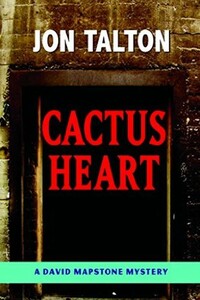
In this "prequel" to the popular David Mapstone mysteries, author Jon Talton takes us back to 1999, when everything dot-com was making money, the Y2K bug was the greatest danger facing the world, and the good times seemed as if they would never end.It was a time before David and Lindsey were together, before Mike Peralta was sherriff, and before David had rid himself of the sexy and mysterious Gretchen.In Phoenix, it's the sweet season and Christmas and the new millennium are only weeks away. But history professor David Mapstone, just hired by the Sheriff's Office, still finds trouble, chasing a robber into an abandoned warehouse and discovering a gruesome crime from six decades ago.Mapstone begins an investigation into a Depression-era kidnapping that transfixed Arizona and the nation: the disappearance of a cattle baron's grandsons, their bodies never found.
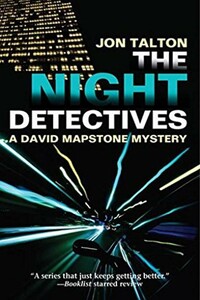
The private-detective business starts out badly for former Phoenix Deputy David Mapstone, who has teamed up with his old friend and boss, Sheriff Mike Peralta. Their first client is gunned down just after hiring them. The case: A suspicious death investigation involving a young Arizona woman who fell from a condo tower in San Diego. The police call Grace Hunter's death a suicide, but the client doesn't buy it. He's her brother. Or is he? After his murder, police find multiple driver's licenses and his real identity is a mystery.
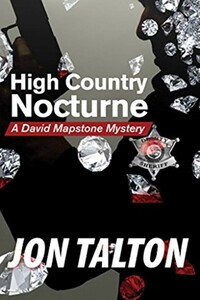
A cache of diamonds is stolen in Phoenix. The prime suspect is former Maricopa County Sheriff Mike Peralta, now a private investigator. Disappearing into Arizona's mountainous High Country, Peralta leaves his business partner and longtime friend David Mapstone with a stark choice. He can cooperate with the FBI, or strike out on his own to find Peralta and what really happened. Mapstone knows he can count on his wife Lindsey, one of the top "good hackers" in law enforcement. But what if they've both been betrayed? Mapstone is tested further when the new sheriff wants him back as a deputy, putting to use his historian's expertise to solve a very special cold case.
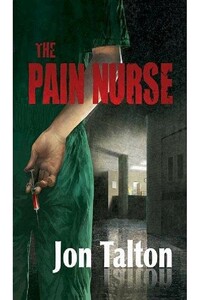
Cheryl Beth Wilson is an elite nurse at Cincinnati Memorial Hospital who finds a doctor brutally murdered in a secluded office. Wilson had been having an affair with the doctoras husband, a surgeon, and this makes her a aperson of interesta to the police, if not at outright suspect. But someone other than the cops is watching Cheryl Beth.The killing comes as former homicide detective Will Borders is just hours out of surgery. But as his stretcher is wheeled past the crime scene, he knows this is no random act of violence.
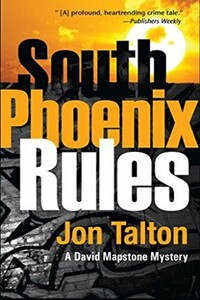
A handsome young New York professor comes to Phoenix to research his new book. But when he's brutally murdered, police connect him to one of the world's most deadly drug cartels. This shouldn't be a case for historian-turned-deputy David Mapstone – except the victim has been dating David's sister-in-law Robin and now she's a target, too. David's wife Lindsey is in Washington with an elite anti-cyber terror unit and she makes one demand of him: protect Robin.This won't be an easy job with the city police suspicious of Robin and trying to pressure her.
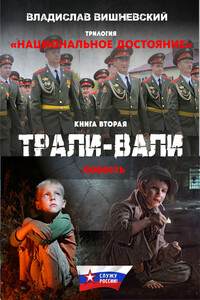
Плохо, если мы вокруг себя не замечаем несправедливость, чьё-то горе, бездомных, беспризорных. Ещё хуже, если это дети, и если проходим мимо. И в повести почти так, но Генка Мальцев, тромбонист оркестра, не прошёл мимо. Неожиданно для всех музыкантов оркестра взял брошенных, бездомных мальчишек (Рыжий – 10 лет, Штопор – 7 лет) к себе домой, в семью. Отмыл, накормил… Этот поступок в оркестре и в семье Мальцева оценили по-разному. Жена, Алла, ушла, сразу и категорически (Я брезгую. Они же грязные, курят, матерятся…), в оркестре случился полный раздрай (музыканты-контрактники чуть не подрались даже)

Действие романа сибирского писателя Владимира Двоеглазова относится к середине семидесятых годов и происходит в небольшом сибирском городке. Сотрудники райотдела милиции расследуют дело о краже пушнины. На передний план писатель выдвигает психологическую драму, судьбу человека.Автора волнуют вопросы этики, права, соблюдения законности.
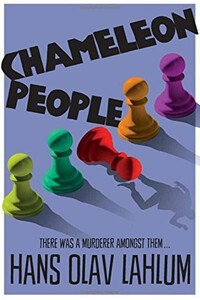
From the international bestselling author, Hans Olav Lahlum, comes Chameleon People, the fourth murder mystery in the K2 and Patricia series.1972. On a cold March morning the weekend peace is broken when a frantic young cyclist rings on Inspector Kolbjorn 'K2' Kristiansen's doorbell, desperate to speak to the detective.Compelled to help, K2 lets the boy inside, only to discover that he is being pursued by K2's colleagues in the Oslo police. A bloody knife is quickly found in the young man's pocket: a knife that matches the stab wounds of a politician murdered just a few streets away.The evidence seems clear-cut, and the arrest couldn't be easier.

Частный детектив Андрей Шальнев оказывается вовлеченным в сложную интригу: ему нужно выполнить заказ криминального авторитета Искандера - найти Зубра, лидера конкурирующей группировки. Выполняя его поручение, Андрей неожиданно встречает свою старую знакомую - капитана ФСБ Кристину Гирю, участвующую под прикрытием в спецоперации по ликвидации обеих банд.

From the creator of the groundbreaking crime-fiction magazine THUGLIT comes…DIRTY WORDS.The first collection from award-winning short story writer, Todd Robinson.Featuring:SO LONG JOHNNIE SCUMBAG – selected for The Year's Best Writing 2003 by Writer's Digest.The Derringer Award nominated short, ROSES AT HIS FEET.THE LONG COUNT – selected as a Notable Story of the Year in Best American Mystery Stories 2005.PLUS eight more tales of in-your-face crime fiction.

Lori Maddox chooses to spend the year after university travelling and visits China where she finds casual work as a private English tutor. Back in Manchester, her parents Joanna and Tom, who separated when Lori was a toddler, follow her adventures on her blog. When Joanna and Tom hear nothing for weeks they become increasingly concerned, travelling out to Chengdu in search of their daughter. Landing in a totally unfamiliar country, Joanna and Tom are forced to turn detective, following in their daughter's footsteps.